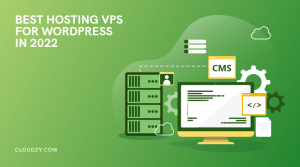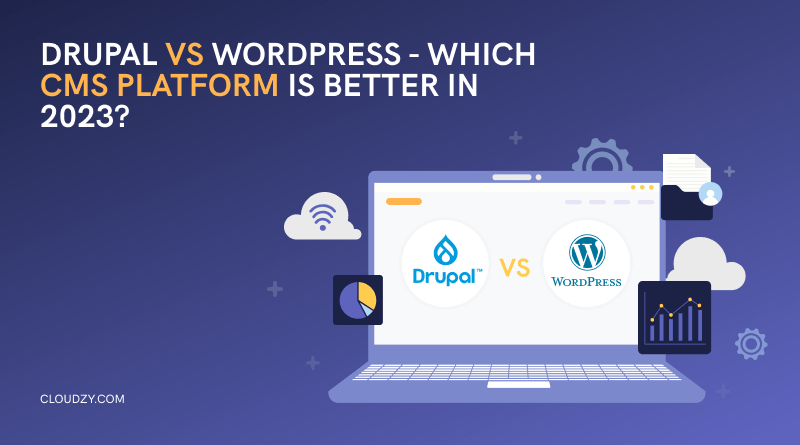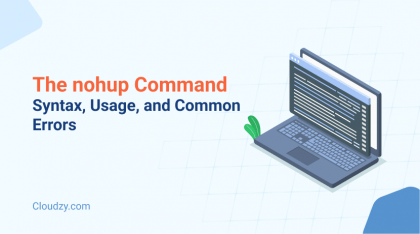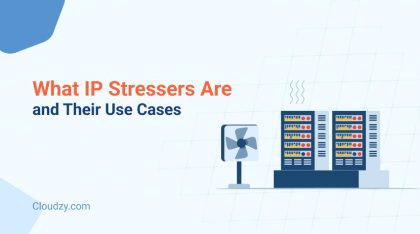With 2023 now here, I believe the new year warrants a fresh evaluation of the best content management systems. Usually referred to as CMS in short, these systems are what power most of the personal and business online endeavors. In recent years, more and more people and businesses are striving to represent themselves on the online space. As such, the demand for credible and reliable content management systems is also on the rise. This is mostly due to the supremacy of content over other types of online communication. Drupal and WordPress are two of the most well-known and commonly used content management systems in the world. So in this post I will cover the pros and cons of both platforms. Following that, I will conclude with a Drupal vs WordPress head to head comparison.
Drupal Pros and Cons
Let’s start the Drupal vs WordPress discussion by covering the pros and cons of Drupal. The Drupal CMS is generally considered viable WordPress, which means it generally fulfills a secondary role compared to WordPress. Here are the main pros and cons of Drupal.
Drupal Pros
Diverse Permissions
Drupal has an in-depth permission layering system that allows the admin to grant a diverse set of customizable permissions to different team members. This makes it a great option for large teams with many different skill sets that need different permissions and privileges.
Base Level Multi-Language Utility
Many other CMS options only come with English as the only available language, making working with them hard for multicultural teams. To address this, other CMS options usually need to add a language plug-in, but with Drupal CMS, many prominent languages are supported in the base version.
Advanced Content Management
Drupal has dedicated sections for each type of content, and each of these sections comes with tailored customization for that specific type of content. If your website has many different content formats that need adjustment and customization, then Drupal CMS is perfect for you.
Customization
Speaking of customization, Drupal is incredibly rich in allowing you to customize the content itself and the type of content. It has many different tools and supported formats in the base version. Again, other CMS options can have a higher ceiling with add-ons, but Drupal CMS has these in the base version.
Drupal Cons
Tough to Use
If there’s one issue with Drupal, that would be its convoluted and messy UI. Drupal’s UI can be a real pain for beginners to wrap their heads around. Despite the difficult UI and the coding experience needed to properly handle Drupal, you can make the most of this flaw, as the challenging learning experience will help you in your online work!
Too Many Updates
Much like Windows 10 and its ceaseless stream of updates that infamously makes users mad at it, Drupal also seems to have an issue with untimely large update chains every once in a while. This can be frustrating, especially if you are not equipped to download them constantly .
Compatibility Issues with Larger Websites
As your website gets larger, and more content from different variations is added, the contributed module of Drupal CMS, which is needed to run larger websites may suffer from compatibility issues. This is not a problem if you are starting, and even if you have a medium to large website, you should be fine. But it is an issue for really large websites.
Resource Intensive
Remember when I mentioned that Drupal is not beginner-friendly? Well one of the ways it manifests itself is by being slow in performance if correctly configured. Unsurprisingly most beginners don’t know how to do this and they will likely suffer from occasional performance tanking.
WordPress Pros and Cons
Now it’s time to look at the other side of the WordPress vs Drupal coin. Drupal is older than WordPress. This makes WordPress a Drupal alternative for veteran users. Let’s go over the pros and cons of WordPress.
WordPress Pros
User-Friendly
WordPress owes most of its success to the fact that it is incredibly user-friendly and allows anyone with basic online skills to create and host their own websites. The UI is elegantly designed to make everything easy to understand for everyone.
Advanced Compatibility
As the most popular CMS in the world, WordPress is already compatible and in sync with most payment gateways, secondary online services, and other third-party related tools. A good example of this synergy are hosting platforms. It’s highly unlikely that you will be left hanging trying to use WordPress with other related programs.

Large Online Community and Documentation
Once again, WordPress’s status as the most popular CMS in the world, makes it have a large online community. This has led to substantial online coverage regarding WordPress tutorials and common issue-solving threads in online forums. So all in all, WordPress is more accessible.
Good Templates and Design Tools
WordPress has a lot of pre-configured website templates that you can choose from and then use design tools to tailor them to your own website’s needs. This ease of content management and website design as part of a single package is a significant factor in WordPress’s success.
WordPress Cons
Plug-In Dependent
As mentioned during our Drupal CMS evaluation, most other CMS options tend to need plug-ins to cover many aspects and needs. WordPress takes this to the extreme. It is somewhat of a running joke in the community that every new task in WordPress needs at least a couple of additional Plug-Ins. So if you are looking for a CMS with an all-in-one approach, WordPress is not for you.
Intensive Management
This one is more of a double-edged sword than a straight con. WordPress is user-friendly and has a UI that makes everything easy. But in turn, it almost completely leaves the user to handle everything themselves. If you have experience doing so, then it’s a good bet. But if you don’t all sorts of issues will happen and you have to run for damage control all the time.
Security
The security issues with WordPress are somewhat related to the previous con I just mentioned. WordPress has the potential to be made as safe as a CMS can get. But as a bare-bones CMS, it can be somewhat underwhelming in security.
Poor SEO Coverage
While other CMS options do provide a lot of analytics and SEO coverage tools to keep your web pages relevant in the search engine index, WordPress once again delegates this to other Plug-Ins to handle. With SEO being crucial to your website’s visibility, this is definitely an issue.
Drupal vs WordPress: Head to Head
With a general understanding of the pros and cons of both Drupal and WordPress, now it’s time to go for a Drupal vs WordPress head-to-head comparison. This WordPress vs Drupal CMS comparison is done across five different categories, and in each one, a winner will be declared. Finally, I will go over which one is best suited for your needs.
Security
The most important issue in any CMS comparison is going to be Security and Drupal vs WordPress is no exception here. Drupal, in general, has a really good base level of security and it is widely regarded as one of the most secure CMS options in the world, and a credible WordPress alternative.
WordPress also has a good security core, but once again, its dependence on Plug-ins creates issues. These plug-ins can both be used to make it potentially more secure than Drupal, but also can cause new security holes. So in general, Drupal takes this category as the more secure CMS.
SEO
The next category in our Drupal vs WordPress comparison is Search Engine Optimization or SEO for short. SEO directly affects your search engine index positioning and as a result, your online reach and visibility. As mentioned during my WordPress evaluation, WordPress has a lackluster Base-level SEO coverage utility. However, let’s not get ahead of ourselves. WordPress can absolutely become the best CMS for SEO with the correct configuration and Plug-Ins.
Drupal comes in with better base-level SEO coverage utilities compared to WordPress. However, despite some plug-in options, it does not have the same potential as WordPress. With SEO being all about personal effort and potential improvements, the higher base-level support of Drupal for SEO is not as meaningful as it was for security. So this round goes to WordPress in my opinion, despite its shortcomings.
Performance
If we ignore Security, the performance index is probably the most important aspect of the Drupal vs WordPress comparison. Measuring performance in a CMS is hard to estimate. This is because as a website’s content size grows, the performance output varies from one CMS to another.
Here again we can see the issue of built-in performance. WordPress is a wild card as far as performance goes. Provided that WordPress is configured properly, it can have the best online loading speeds with millisecond loading times being a real possibility. However WordPress can also falter if not augmented with plug-ins and correct options.
Drupal has a great performance right out from the get-go. But just like I mentioned earlier, as your website gets more and more content loaded on it, it can have performance depletion instances. However, most websites never get to that level. So between Drupal and WordPress, which one has a better overall performance? On average, the answer is Drupal CMS.
Flexibility
In this Drupal vs WordPress comparison, Flexibility is defined as the number of potential utilities that a CMS offers in order to help you create, customize, and augment your website to increase its performance indexes.
Let’s start with Drupal. Drupal once again does not disappoint with its base-level features. It has a pretty solid amount of plug-ins to help beginners, and it also has a great level of compatibility and flexibility features within the base version. However, after a certain point, Drupal’s harder learning curve hinders the user. So in order to bypass this threshold, a user needs to have a little more advanced coding knowledge.
WordPress not only has a ton of templates and features in its base version, but it is the undisputed most supported and adaptable CMS option when it comes to flexibility and compatibility. So which is more flexible, Drupal or WordPress? For me, the answer is clearly WordPress, with its huge plug-in cohort and advanced third-party compatibility.
Ease of Use
Ease of use and user-friendliness is the final metric in which we are going to compare Drupal vs WordPress. Ease of use is a major factor, especially for beginner users who are just getting started in hosting their own websites. These users need to quickly get a CMS on their hands that allows them seamless and easy content management.
So long we are talking about basic functions and tasks, Drupal is easy to use. However, once things start to get progressively more advanced, difficulty of handling them using Drupal also gets higher. Drupal definitely has a difficult learning experience especially for advanced tasks. This is not that bad, as you can use the learning experience in your website-running journey. However, it does not make it any easier either.
WordPress on the other hand is the beginner user’s dream. Everything from the setup to configuration, to the UI, is designed to be as simple to understand as possible. WordPress goes to great lengths to hold the hand of newer users and allow them to set up their website, design it and manage their content in a single platform. This is the principal reason behind its universal success and prominence.
So if you are new to CMS in general, should you go for Drupal or WordPress? To me, it’s clear that in this category WordPress is the decisive winner.
Drupal or WordPress: Best CMS for VPS?
So now that we have concluded the WordPress vs Drupal comparison, should you go for Drupal or WordPress when hosting on a VPS? WordPress won the head-to-head comparison, and as such, I believe it to be the overall better option for hosting and managing your website’s content, especially for beginner users.
Drupal is a great WordPress alternative if you have advanced coding knowledge and are looking for a lightweight CMS with a focus on security and performance.
If you decide to stick with WordPress, then Cloudzy and its high-quality WordPress VPS is a great way to host, design, and manage your website’s content all in one server package. With Cloudzy’s WordPress VPS, you get a free, preconfigured instance of WordPress on your VPS ready to go. You also get more than 15 server locations to choose from, an ironclad security process on your server, as well as diverse payment and billing options!
 Start Blogging
Start Blogging
Self-host your WordPress on top-tier hardware, featuring NVMe storage and minimal latency around the world — choose your favorite distro.
Get WordPress VPSCloudzy works hard to support its users both by providing them with high quality 24/7 customer support as well as a knowledge base; a great resource for Cloudzy VPS users, with answers to any problems they may encounter. WordPress-wise you can use these two articles to set up WordPress on a VPS and enhance your WordPress VPS and later also enjoy the aforementioned support!
FAQ
Do People Still Use Drupal?
Yes. Despite being overtaken by WordPress, Drupal remains an active CMS with more than 63000 active users on it. With active updates, it will likely remain one of the best WordPress alternative options for years to come.
Is WordPress Better than Drupal?
This is a subjective matter. But all in all, as reflected by the results of our Drupal vs WordPress head-to-head comparison, WordPress seems to be the better all-around option, especially if you are a beginner.
What are Alternatives to Drupal?
There are tons of options that can be considered as a Drupal alternative. Some of the best ones include but are not limited to Contentful, Kentico, Sitecore XM, Joomla, and of course WordPress.
Which CMS is better than WordPress in 2023?
Topping the WordPress experience is a really hard ask. But some of the credible WordPress alternative options that can offer a balanced experience in 2023 are Squarespace, Webflow, and Wix.










0 Comment